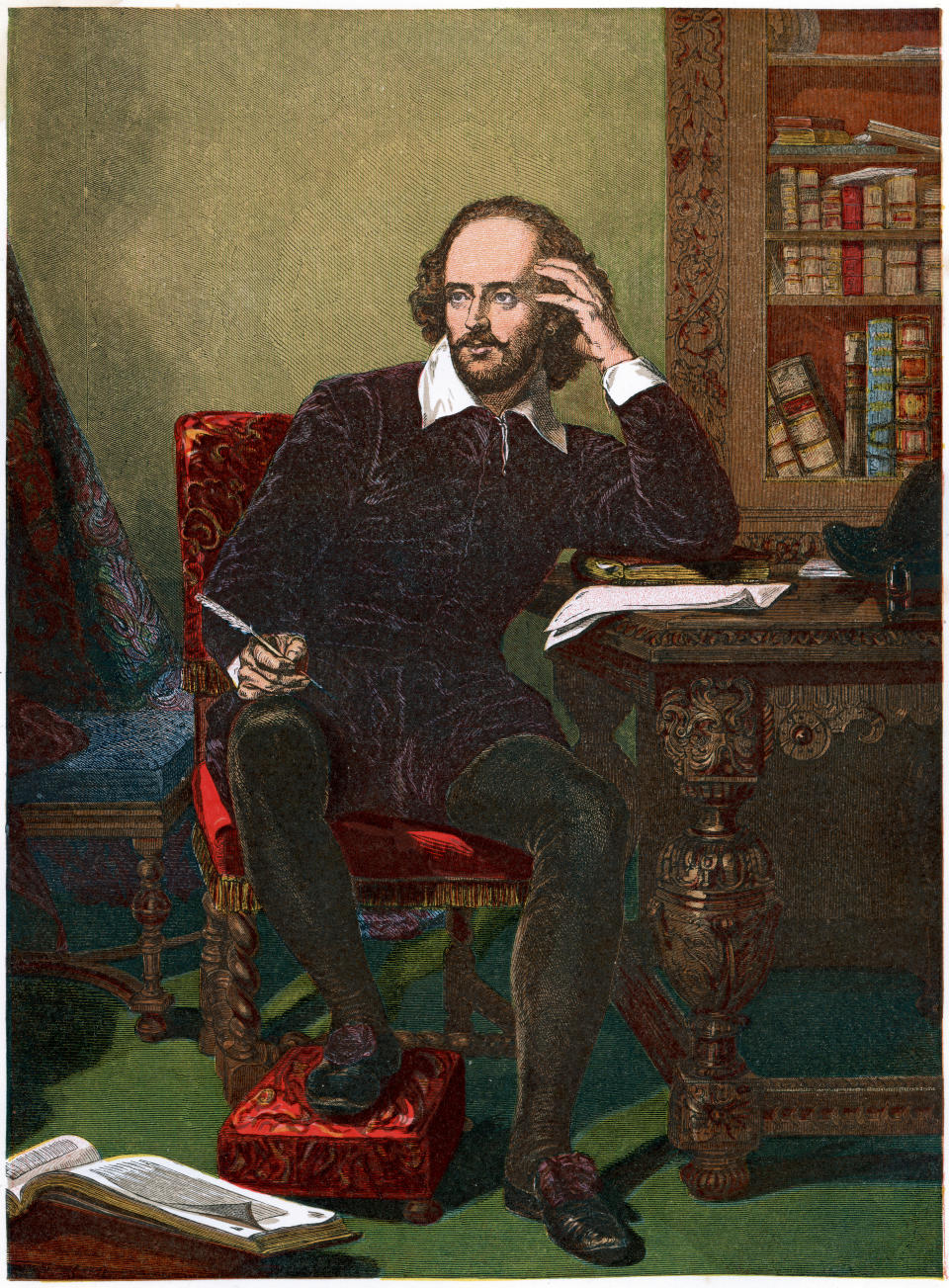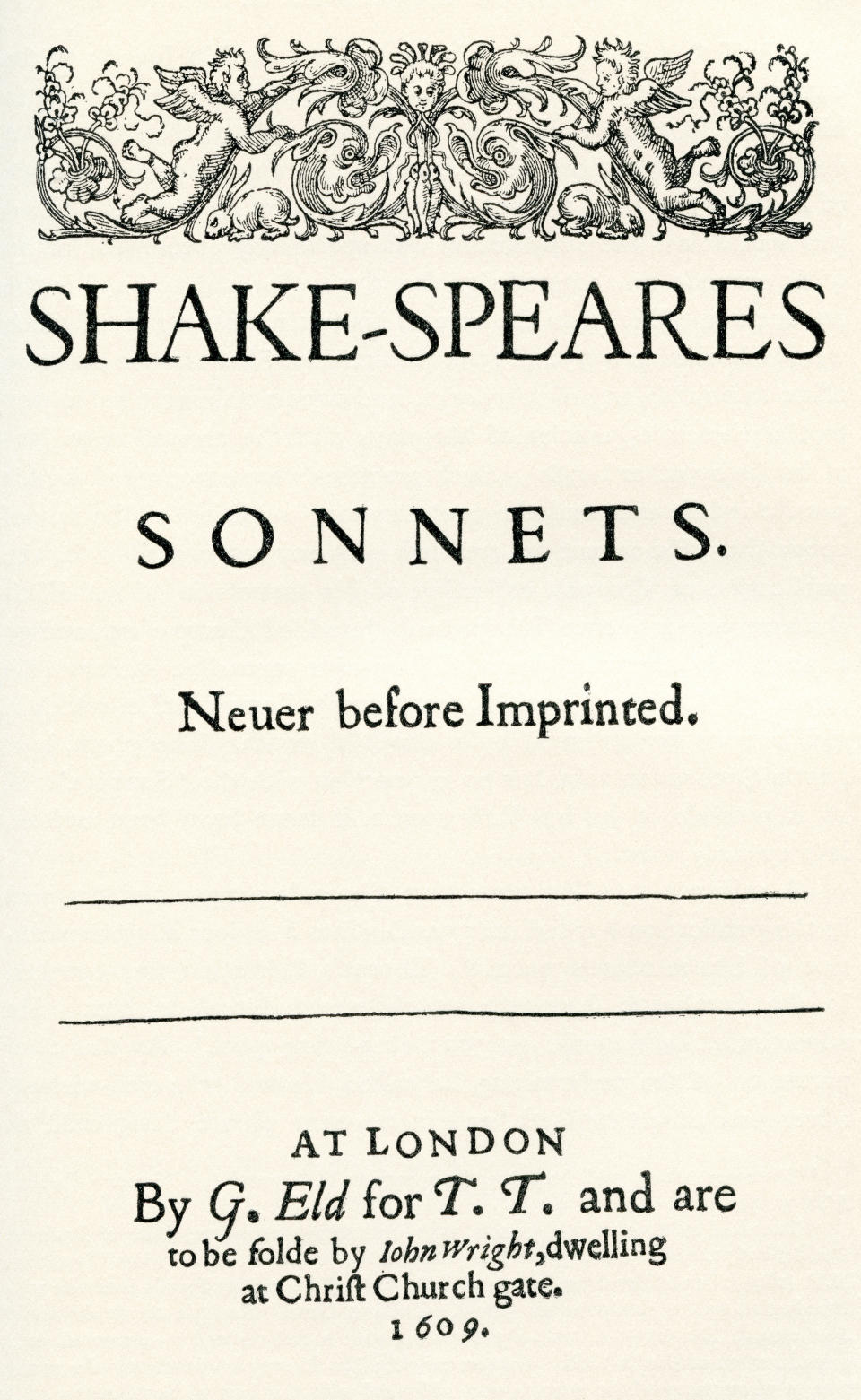Shakespeare's sonnets show he was 'definitely bisexual', academics claim

Academics have claimed that William Shakespeare was “definitely bisexual” following a fresh analysis of his sonnets.
As part of their study, Professor Sir Stanley Wells and Dr Paul Edmondson rearranged the sonnets in the order they were most likely written by the bard.
In total, they were left with 182 sonnets dating from around 1578 onwards, after adding in those published within Shakespeare’s plays.
Despite previous claims that Shakespeare’s sonnets show he was obsessed with the “Fair Youth” and led astray by his “Dark Lady”, Wells and Edmondson said the opposite is true.
“The language of sexuality in some of the sonnets, which are definitely addressed to a male subject, leaves us in no doubt that Shakespeare was bisexual,” Edmonsdson told The Telegraph.

“It’s become fashionable since the mid-1980s to think of Shakespeare as gay. But he was married and had children.
"Some of these sonnets are addressed to a female and others to a male. To reclaim the term bisexual seems to be quite an original thing to be doing.”
While sodomy was illegal in Elizabethan England, expressions of same-sex love and desire were accepted.
The vast majority of Shakespeare’s sonnets are addressed to a young man, and his long poem Venus and Adonis is preoccupied with male physical beauty.
Sonnet 20 refers to the young man as “the master mistress of my passion” and praises him as having a woman’s beauty in a man’s form.
Read more: Chancellor visits Shakespeare’s Globe after announcing £1.57bn of arts support
Shakespeare’s biographers through the years have noted that his poetry is filled with gay imagery and sexual puns.
Sir Brian Vickers, a visiting professor at University College London, is one academic who has previously maintained that Shakespeare’s literary material doesn’t confirm his sexuality either way.
“If you fix these codes and then say that his 126 poems are like this, then people stop reading them as poems,” he said in 2014. “They read them as biographical documents, looking for imputed sexuality.”
Commenting on Vickers’s argument, scholar Arthur Freeman said that his fellow academic had presented “presuppositions that many of us would question, if not reject out of hand”.
“I cannot think of any responsible editor who would dismiss the premise of homosexual, as well as heterosexual passion pervading [the sonnets],” Freeman added.

 Yahoo News
Yahoo News 